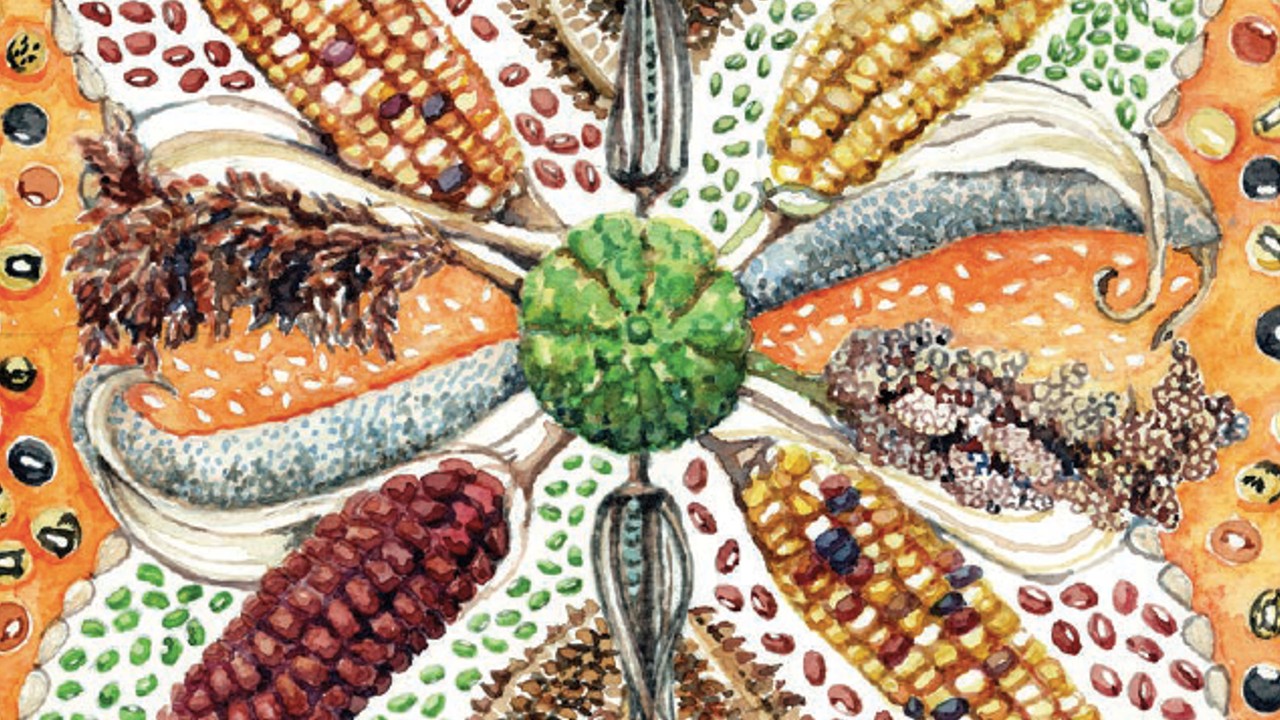Latest Resources

8 September 2018
The Arusha Protocol and Regulations: Institutionalising UPOV 1991 in African seed systems and laws
In the recently published discussion document by the African Centre for Biodiversity titled, The Arusha Protocol and Regulations: Institutionalising UPOV 1991 in African seed systems & laws, authors Linzi Lewis and Mariam Mayet attempt to provide an updated, and holistic critique of the Arusha Protocol for the Protection of New Varieties of Plants read together […]

23 February 2018
Face to Face: African CSOs confront ARIPO, SADC over Draconian Harmonised Seed Laws
The ACB has the pleasure of sharing with you a short 5-minute video of the Southern African seed law and seed sovereignty dialogue, Face to Face: African CSOs confront ARIPO, SADC over Draconian Harmonised Seed Laws, co-hosted by the ACB in partnership with PELUM-Zimbabwe, which took place in Harare, Zimbabwe, 28-30th June 2017. Please watch […]

15 January 2018
Status report on the SADC, COMESA and EAC harmonised seed trade regulations: Where does this leav...
The Status Report on the SADC, COMESA and EAC harmonised seed trade regulations: Where does this leave the regions’ smallholder farmers? researched and written by Linzi Lewis and Sabrina Masinjila of the African Centre for Biodiversity (ACB), provides a brief background and status update on efforts by regional economic communities to harmonise seed trade and […]

16 October 2017
GM cotton in Africa: battleground between US and Chinese Capital
This paper provides an overview of the GM cotton push in in East and Southern Africa, within the context of the global and regional cotton markets.

13 March 2017
Two simplified briefings introducing new GM technologies and biosafety risks
These reports introduce the novel techniques already being employed, or in development and their associated biosafety concerns that go against the claim that crops developed with these methods are technological progress in ‘precision’ and ‘safety’. Further described is the utilisation of RNA interference, an epigenetic process that is already being employed in commercialised crops. Despite […]

13 January 2017
Hands OFF Our Food Systems! Small Farmers NOT Corporates Feed Africa
This lobby paper Who will feed Africans: Small-scale farmers not corporations! produced by the partnership between FoEA and ACB, makes the compelling case for African agriculture to transition towards agroecology and food sovereignty, recognising and strengthening the role of small scale farmers, rather than benefiting few large scale corporations with detrimental ecological, socio-economic, and nutritional […]

13 July 2016
Soil fertility: Agroecology and not the Green Revolution for Africa
This synthesis report summarises ACB’s research on the Green Revolution push in Africa, based on fieldwork conducted in Malawi, Mozambique, Tanzania, Zambia and Zimbabwe over the past three years. The research indicates that the promotion of synthetic fertiliser use in Africa is only a short-term fix for enhancing soil fertility on the continent. In the […]

11 July 2016
Farm Input Subsidy Programmes (FISPs): A Benefit for, or the Betrayal of, SADC’s Small-Scale Farm...
This paper reviews the farm input subsidy programmes (FISPs) within countries belonging to the Southern Africa Development Community (SADC), to ascertain whether input subsidies have benefited small-scale farmers, have increased food security at the household and national levels, and have improved the incomes of small-scale farmers. Download the report.

2 June 2016
Integration of small-scale farmers into formal seed production in South Africa
The scoping report looks at key policies, legislation and programmes in SA with an emphasis on seed laws and considers the implications for small- scale farmer involvement in this sector and outlines a few projects on community seed production, indigenous crops and black- owned private sector seed production efforts.

4 May 2016
Changing Seed and Plant Variety Protection Laws in Tanzania – Implications for Farmer-Manag...
Seed legislation is under review in Tanzania with a view to changing this in order to further expand the role of the private sector in the commercial seed sector. This law reform is mainly targeted at the seed marketing laws (Seed Act of 2003 and its regulations of 2007) and revision of its Plant Breeder’s […]
